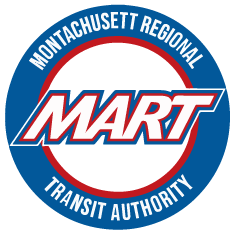GreenDOT Compliance
In 2010, the Massachusetts Department of Transportation (MassDOT) launched their sustainability and environmental responsibility initiative to “green” the state transportation system, called GreenDOT. All branches of the Commonwealth’s transportation system (transit, air, highway and planning) are subject to the policies contained within the GreenDOT Initiative.
Three state laws were passed, driving the need for this initiative: the Global Warming Solutions Act, The Healthy Transportation Compact, and the Leading by Example & Environmental Purchasing Policy. This policy was derived from these acts and is driven by three primary objectives: (1) reduce greenhouse gas emissions, (2) promote healthy transportation options, and (3) support smart growth and development.
To meet these objectives and to become a national leader in sustainability and transportation, MassDOT created an implementation plan in 2012 that outlines seven themes (air, energy, land, materials, planning policy &design, waste, and water) containing 16 sustainability goals.
As part of the GreenDOT policy, each indicator was given a priority for implementation. Indicators for immediate implementation are those that were to be implemented by 2013, medium-term by 2015 and long-range policy targets for 2020. The indicators are measurable tasks that describe sustainable practices. MART is working continuously to achieve the indicators and has accomplished many of these goals already. Some of the applicable indicators are joint responsibilities of MART, MassDOT, MRPC, or the municipality, and they must work collaboratively to achieve success.
Some examples of sustainable practices already implemented at MART include:
Air
Fleet replacement plan so that old vehicles with lower air quality standards are replaced with fuel efficient vehicles at higher emission standards. MART has electric vehicle chargers at MART’s parking garages. Ayer and Wachusett will get chargers in 2022.
Energy
Solar panel arrays installed at two MART facilities with net metering back to the grid. LED lighting replacements in all our facilities will save on electrical consumption. There are plans to put a solar canopy behind the Water Street Facility to park vehicles underneath in the near future.
Land
MART uses low maintenance plants and minimally invasive techniques for weed control to minimize impacts to the land. MART also only plants native vegetation in its landscaping.
Materials
MART uses environmentally friendly cleaning products and procedures. We have reduced our hazardous chemical use in operations and maintenance.
Planning, Policy & Design
MART promotes healthy transportation by connecting land use with planning transportation. MART has bicycle racks on all our fixed-route buses and at our stations.
Waste
MART is minimizing waste by recycling and using less material such as paper by scanning instead of copying, direct deposit to employees, and EFT to contractors.
Water
Water recycling in our bus and van washing stations

